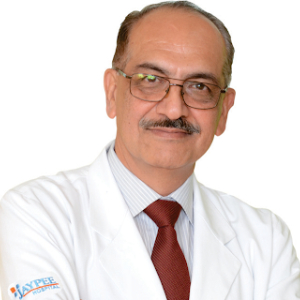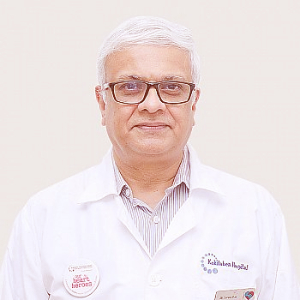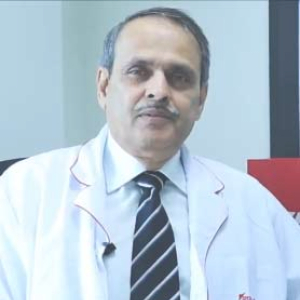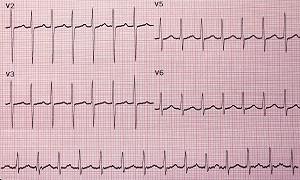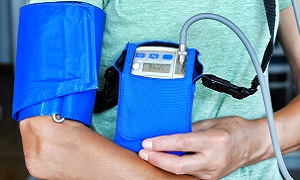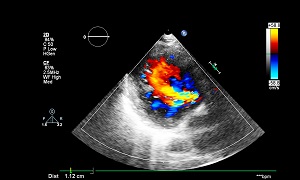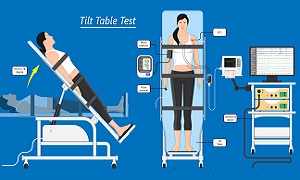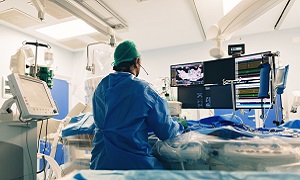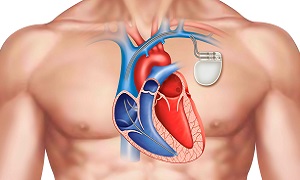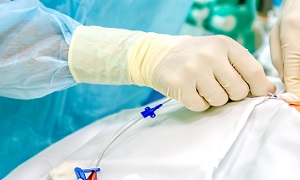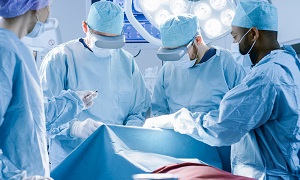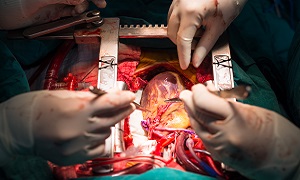Best Doctors in India for Arrhythmia Treatment
- Cardiac Surgeon, Noida, India
- Over 30 years’ experience
Profile Highlights:
- Dr. Manoj Luthra is a highly experienced and renowned Cardiac surgeon who has 30+ years of experience and performed the first heart transplantation surgery in the Indian Armed Forces.
- Till date, Dr. Manoj Luthra has performed more than 12,000 cardiac surgeries including 8000 heart bypass surgeries. He has also performed many heart transplants and aneurysm surgeries.
- Pediatric Cardiac Surgeon, Mumbai, India
- Over 33 years’ experience
Profile Highlights:
- Dr. Suresh Rao is a highly experienced cardiac surgeon specializing in congenital heart diseases and has performed more than 12,000 surgeries for congenital heart diseases and disorders.
- Dr. Rao holds an extensive experience of over 33 years in Pediatric and congenital cardiac surgery and has performed numerous simple and complex heart defect surgeries with successful outcomes.
- Dr. Suresh Rao introduced the Modified Ultrafication procedure after congenital heart surgery in India and has used the procedure in the treatment of a large number of pediatric as well as adult patients.
- Cardiac Surgeon, Mumbai, India
- Over 30 years’ experience
Profile Highlights:
- Dr. Suresh V Joshi is a cardiac surgeon in Mumbai with expertise in undertaking complex surgeries as a result of congenital heart diseases.
- He holds an extensive experience of over 3 decades in cardiac surgery and specializes in Coronary Artery Bypass Grafting (CABG); specifically Beating Heart CABG and Minimally Invasive Cardiac Surgeries.
- He is an expert in all kinds of coronary and interventional cardiac procedures and has performed over 15,000 cardiac surgeries for different kinds of heart defects and disorders.
Best Hospitals in India for Arrhythmia Treatment
Fortis Escorts Hospital, New Delhi
- City: New Delhi, India
Hospital Highlights:
- Over the last 33 years, the Fortis Escorts Heart Institute has set new standards in cardiac treatment with groundbreaking research. It is now known around the world as a centre of expertise for Cardiac Bypass Surgery, Interventional Cardiology, Non-invasive Cardiology, Paediatric Cardiology, and Paediatric Cardiac Surgery.
- The hospital has cutting-edge laboratories that perform a wide range of diagnostic tests in Nuclear Medicine, Radiology, Biochemistry, Haematology, Transfusion Medicine, and Microbiology.
- Fortis Escorts Heart Institute boasts a diverse group of bright and experienced doctors who are backed up by a team of highly qualified, experienced, and devoted support professionals as well as cutting-edge equipment such as the recently installed Dual CT Scan.
- Approximately 200 cardiac doctors and 1600 personnel currently collaborate to manage over 14,500 admissions and 7,200 emergency situations each year. The hospital now has a 310-bed infrastructure, as well as five cath labs and a slew of other world-class amenities.
Rela Hospital, Chennai
- City: Chennai, India
Hospital Highlights:
- RIMC is a multi-specialty hospital in a sprawling area of 36 acres located in Chromepet, Chennai, Tamil Nadu, India.
- The facility has 450 beds including 130 critical care beds, 9 operating rooms, modern reference laboratories and radiology services, and is conveniently located near road, rail and air transportation.
- RIMC is led and managed by world-renowned physicians committed to healthcare.
- RIMC offers the broadest range of clinical care, education, and research. The hospital offers state-of-the-art technology and modern treatment facilities designed to provide health care at an affordable cost.
- Rela Institute is driven by patient needs, comfort and confidence.
CARE Hospitals, Hyderabad
- City: Hyderabad, India
Hospital Highlights:
- CARE Hospitals were established in the year 2000, by CARE Group.
- The multispecialty hospital has 435 beds, including 120 critical care beds, with an annual inflow of 180000 outpatients and 16,000 in-patients.
- The hospital provides specialty medical services in Cardiology, Cardiothoracic Surgery, Pediatric Cardiology, Pediatric Cardiothoracic Surgery, Neurology, Neurosurgery, Nephrology, and Urology.
- The hospital has the first dual source, 128 slice CT scanner (for high precision cardiac imaging) – the first of its kind in south India.
- The hospital offers a wide range of accommodation facilities for the convenience of its varied patient base, ranging from general wards to super deluxe rooms.
Fortis Hiranandani Hospital, Mumbai
- City: Mumbai, India
Hospital Highlights:
- Fortis Hiranandani hospital was established in 2007.
- The hospital is an advanced tertiary care, multi-specialty hospital equipped with 149 beds.
- The hospital is equipped with a super ICU to provide emergency medical care to critically ill patients.
- The hospital is NABH accredited.
- The critical care facility in the hospital is augmented with the state-of-the-art facilities that facilitate speedier diagnosis and efficient monitoring.
- The hospital provides specialty medical services in cardiology, orthopedic science, pediatric science, neurology, diabetic care, urology, nephrology, ENT, obstetrics, gynecology, cosmetic surgery, bariatric surgery, neuro and spine care.
Fortis Hospital, Anandpur, Kolkata
- City: Kolkata, India
Hospital Highlights:
- Fortis Hospital, Anandapur, Kolkata is a world-class super-speciality equipped with the latest technologies in the medical world.
- The hospital is NABH accredited.
- This state-of-the-art facility specializes in cardiology and cardiac surgery, urology, nephrology, neurosciences, orthopaedics, digestive care, emergency care and critical care.
- The hospital, governed by integrated Building Management System (IBMS), has a pneumatic chute system, for quick vertical and horizontal transportation between floors, facilitating speedy transfer of patient specimens, documents, reports, and medicines to the concerned departments.
- The hospital also has a nephrology department with over 28 advanced dialysis units.
Fortis Hospital Banerghatta, Bengaluru
- City: Bengaluru, India
Hospital Highlights:
- Fortis Hospital Bannerghatta, Bengaluru was established in 2006.
- The hospital is a 276 bedded multi-specialty tertiary care facility.
- The hospital specializes in cutting-edge medical technology and dedicated patient care services.
- The hospital is equipped with state-of-the-art technologies like trans-radial angioplasty, trans-abdominal cardiac surgery, and computerized TKR navigation surgery.
- The hospital provides specialty medical services in cardiology, cardiac surgery, orthopedics, neurology, neuro-surgery, GI, and Minimal Access Surgery (MAS).
Fortis Hospital, Malar, Chennai
- City: Chennai, India
Hospital Highlights:
- Fortis Malar was established in 1992 and was formerly known as Malar Hospital.
- The hospital specializes in cutting-edge medical technology and dedicated patient care services.
- The hospital is multi-specialty, tertiary care facility with 180 beds.
- The hospital offers comprehensive medical care in specialties such as cardiology, cardio-thoracic surgery, neurology, neurosurgery, orthopedics, nephrology, gynecology, gastroenterology, urology, pediatrics, and diabetes.
Gleneagles Global Hospital, Parel, Mumbai
- City: Mumbai, India
Hospital Highlights:
- Gleneagles Global Hospital The 450-bed facility comprises of 17-stories, housing state-of-the-art infrastructure, and advanced medical care facilities.
- The hospital offers end-to-end clinical, surgical, and diagnostic services. It is equipped with a team of eminent medical professionals aided by qualified nurses and medical staff
- The Hospital offers advanced Endoscopic procedures, Hepatobiliary and Liver Surgeries, Surgical and Medical Gastroenterology, Bariatric Surgery, and Robotic surgery.
- The hospital is a center of excellence for Orthopedics, Joint Replacement, Knee Replacement, and Hip Replacement surgery.
Jaypee Hospital, Noida
- City: Noida, India
Hospital Highlights:
- Jaypee Hospital is the flagship hospital of the Jaypee Group.
- This hospital has commissioned 525 beds in the first phase and has been planned and designed as a 1200 bedded multi-specialty facility.
- It holds the accreditation of the NABH and NABL.
- The hospital has state-of-the-art infrastructure equipped with the latest technologies and modern equipment like 64 Slice PET CT, Dual Head 6 Slice SPECT CT, Gamma Camera, and Da Vinci Robotic Surgery for comprehensive robotic surgical solutions.
- It has special Centers dedicated to the major specialties to provide hassle-free and high-quality clinical care.
Manipal Hospital, Dwarka, Delhi
- City: New Delhi, India
Hospital Highlights:
- Manipal Hospitals, Dwarka, is a super-specialty hospital in Dwarka, New Delhi, which is a part of Manipal Hospitals Group.
- The hospital aims to provide the best treatment on par with international standards at a fraction of the cost.
- Equipped with 380 beds, the hospital is also one of the new age hospitals which are equipped fully with state-of-the-art infrastructure, cutting-edge technology as well as the latest and advanced clinical practices. The hospital also has 13 modular Operation theatres with 118 beds which are solely meant for critical care.
- The hospital comprises internationally acclaimed doctors and highly professional and experienced hospital and medical staff who are able to provide preventive, therapeutic, and diagnostic services all under one roof.
ARRHYTHMIA
Arrhythmia is a condition of irregular heartbeat, where a person’s heart may beat too fast, too slowly or with an irregular rhythm. This problem occurs when the electrical signals that coordinate heartbeats don’t work properly. An irregular heartbeat might feel like a racing heart. Sometimes, doctors use the word ‘dysrhythmia’ to describe this condition, but the words ‘dysrhythmia’ and ‘arrhythmia’ actually means the same.
Many heart arrhythmias are harmless. However, if they become highly irregular or result from a weak or damaged heart, it can cause severe and potentially fatal symptoms as well as complications.
Types of Arrhythmia
There are different categories of arrhythmia, which includes:
- Bradycardia, a slow heartbeat
- Tachycardia, a fast heartbeat
- Irregular heartbeat also called flutter or fibrillation
- Early heartbeat, also called as a premature contraction
The majority of arrhythmias are not severe and they don’t cause complications. However, there are some, which can increase the risk of stroke or cardiac arrest.
Symptoms of Arrhythmia
Arrhythmias might not cause any signs or symptoms. It is usually found by your doctor while having a routine examination. It is also important to note that having a few signs and symptoms doesn’t necessarily mean that your condition is serious.
Some of the noticeable symptoms of arrhythmia include:
- A fluttering in your chest
- A slow heartbeat
- Chest pain
- Shortness of breathe
- A racing heartbeat
- Fatigue
- Anxiety
- Sweating
- Fainting
- Lightheadedness
If you are experiencing these problems on a regular basis, you might consider seeking urgent medical care. Ventricular fibrillation is a type of arrhythmia that can be deadly. It occurs when your heart beats with rapid, erratic and electrical impulses. This can cause the lower chambers of your heart to quiver uselessly instead of pumping blood. Without a proper and effective heartbeat, blood pressure plummets and it cuts off blood supply to the vital organs.
A person suffering from ventricular fibrillation can collapse within a few seconds and soon won’t be breathing or having a pulse. If this happens, you need to call the emergency number in your area. If you find no one who is trained in cardiopulmonary resuscitation, try to provide hands-only CPR. Also, see if an automated external defibrillator is available nearby. They might be available in several places, such as airplanes, police cars or shopping malls.
Causes of Arrhythmia
Several causes leading to arrhythmia is there, such as
- Alcohol abuse
- Diabetes
- Drinking a lot of coffee
- High Blood Pressure
- Hyperthyroidism
- Stress
- Scarring of the heart, often due to a heart attack
- Substance abuse
- Certain medications or supplements
- Smoking
- Structural changes in the heart
A person having a healthy heart won’t ever experience long-term arrhythmia, unless they receive an external trigger, such as an electrical shock.
Diagnosis of Arrhythmia
For diagnosis of a heart arrhythmia your doctor will review your symptoms as well as your medical history, after which a physical examination will be conducted. Your doctor might ask you about conditions that can trigger your arrhythmia, such as heart disease or a problem with the thyroid gland. Your doctor might also perform heart-monitoring tests specific to arrhythmias. These can include:
Electrocardiogram
Holter monitor
Event recorder
Echocardiogram
Implantable loop recorder
Stress test
Tilt Table Test
Your doctor might recommend tilt table test if you’ve had fainting spells. Your heart rate and blood pressure are monitored as you lie flat on the doctor’s table. Then the table is tilted as if you were standing up. This can help your doctor observe how your heart and the nervous system which controls it respond to the change in angle.
Electrophysiological testing and mapping
Treatment options for Arrhythmia
Treating slow heartbeats
If slow heartbeats don’t have a cause that can be corrected, then doctors usually treat them with a pacemaker because there are no medications that are known to reliably speed up the heart.
Pacemaker is a small device that is usually implanted near your collarbone. Multiple electrode-tipped wires run from the device through your blood vessels to the inner portion of your heart. If your heart rate is too slow or if it stops, the pacemaker will be sending out electrical impulses which will be stimulating your heart to beat at a steady rate.
Treating fast heartbeats
Vagal maneuvers
It is possible to stop arrhythmia which begins above the lower half of the heart with the use of particular maneuvers which can include holding your breath and straining or dunking your face in ice water or coughing.
Your nervous system is affected by these maneuvers. Therefore this method can control your heartbeat and often causes your heart rate to slow. However, this technique doesn’t work for all kinds of arrhythmia.
Medications
For various types of tachycardia, your doctor will prescribe you medication to control your heart rate or restoring a normal heart rhythm. It is quite important to take any anti-arrhythmic medication as your doctor has directed. If you are having atrial fibrillation, your doctor might prescribe blood-thinning medications to help in keeping dangerous blood clots from forming.
Cardioversion
If you are having a certain type of arrhythmia like atrial fibrillation, your doctor might use cardioversion which can be conducted as a procedure or through medications.
Catheter ablation
During catheter ablation, your doctor threads one or more catheters through the blood vessels to your heart. Electrodes that are at the catheter tips can use heat, extreme cold or even radiofrequency energy to damage a small spot of heart tissue. It will then create an electrical block along the pathway that’s causing your arrhythmia.
Sometimes a pacemaker or defibrillator can also be implanted to help in treating heart arrhythmias. When a pacemaker detects an abnormal heart rate, it will emit electrical impulses which can stimulate the heart to beat at a normal rate. A defibrillator can also detect abnormal heart rhythm and send out low or high-energy shocks for resetting the heart to a normal rhythm. However, this device will not be able to prevent the abnormal rhythm from occurring.
Surgery
Surgery is also recommended in some cases for treating heart arrhythmias:
Maze procedure
In maze procedure, a surgeon will make a series of surgical incisions in your heart tissue in the upper half of the heart. Since scar tissue will not conduct electricity, it will interfere with stray electrical impulses that can cause some types of arrhythmia.
Though this procedure is effective, it is only reserved for the people who have not responded well to other treatments.
Coronary bypass surgery
Lifestyle changes
Prevention of Arrhythmia
In order to prevent heart arrhythmia, living a healthy lifestyle is quite important to reduce the risk of a heart ailment. A heart-healthy lifestyle can include:
- Eating a diet healthy for your heart
- Staying active physically and maintaining your weight
- Avoiding smoking or inhaling smoke
- Limiting the use of caffeine and alcohol
- Reducing stress, because intense stress and anger can lead to problems in the rhythm of the heart
- Using over-the-counter medications, with caution, as some cold and cough medications contain stimulants which can trigger a rapid heartbeat.

